Last Updated: 06/06/2025
Puppy Behaviour: How to Manage Problem Behaviours
Check out our tips to stop your puppy from barking eating poo and digging from our vet team.
Author: Dr Teagan Lever BVSc (Hons)
Reading Time: 35 minutes - long read
Bringing home a new puppy is an exciting time, but it also comes with its own set of challenges. Understanding and addressing common puppy behaviours is essential for a smooth and enjoyable experience.
This guide will explore some of the most frequent puppy behaviours and offer effective solutions using positive reinforcement training. By focusing on rewarding desired behaviours, you can shape your puppy's development while building a strong and loving bond.
Positive reinforcement, also known as reward-based training, is widely recognized as the most humane and effective approach to dog training. It involves praising and rewarding your puppy for good behaviour, while gently ignoring or redirecting unwanted actions. Avoid using punishment, as it can be counterproductive and damage your relationship with your furry friend.
Need supplies for your new puppy?
Check out our Better Puppy Bundle - a complete vet-approved puppy essentials pack, designed to help tick off your new puppy checklist. It contains parasite prevention, toys, treats, dog training aids, food vouchers, and more!
Filled with up to $230 worth of products, our discounted price ($49.95) makes for incredible value! This new puppy bundle is available in different sizes - for small, medium, or large breed pups.
In this article
- How to stop your puppy from biting and mouthing
- How to help your puppy stop crying at night
- How to reduce barking
- How to stop your puppy from peeing indoors
- How to stop your puppy from eating poo
- How to help your puppy greet people calmly
- How to help your puppy greet other dogs calmly
- How to stop your puppy digging
- How to stop your puppy from chewing on everything
How to stop a puppy from biting
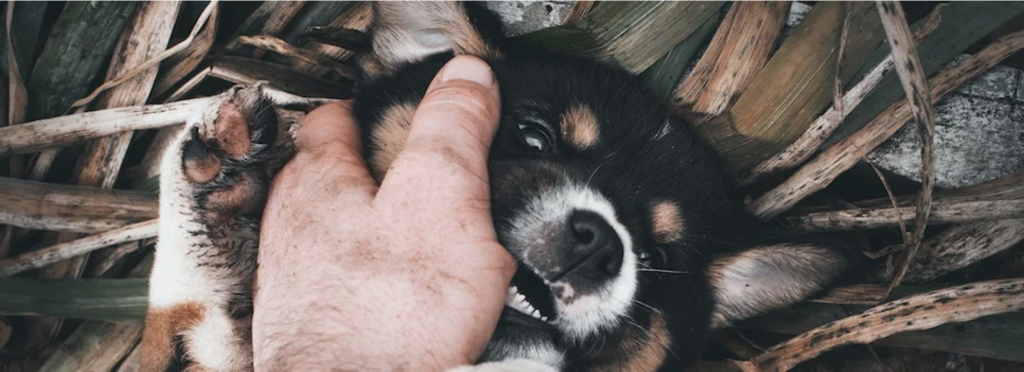
Puppies naturally explore the world with their mouths, often leading to nipping or mouthing human hands during play. While this is normal, it's important to teach your puppy appropriate play behavior.
To address biting, focus on two key areas: bite inhibition and redirecting the behavior to an appropriate outlet, like a chew toy.
When your puppy bites your hand, let your hand go limp and remain still for a moment. This signals that the biting has stopped the play. Avoid pulling your hand away abruptly, as this might be seen as a game. Everyone in the household should use this technique. Reward your puppy for playing without nipping with praise and continued play.
When your puppy starts to mouth, gently redirect them to a toy. Praise your puppy or play a game of tug-of-war when they interact with the toy. If your puppy becomes too rough and starts mouthing again, end the play session until they calm down.
What to avoid:
Never punish your puppy for biting by yelling, smacking, or holding them down. This can create fear and lead to aggression. If you suspect your puppy is biting aggressively, consult a behaviorist for guidance.
How to stop your puppy crying at night
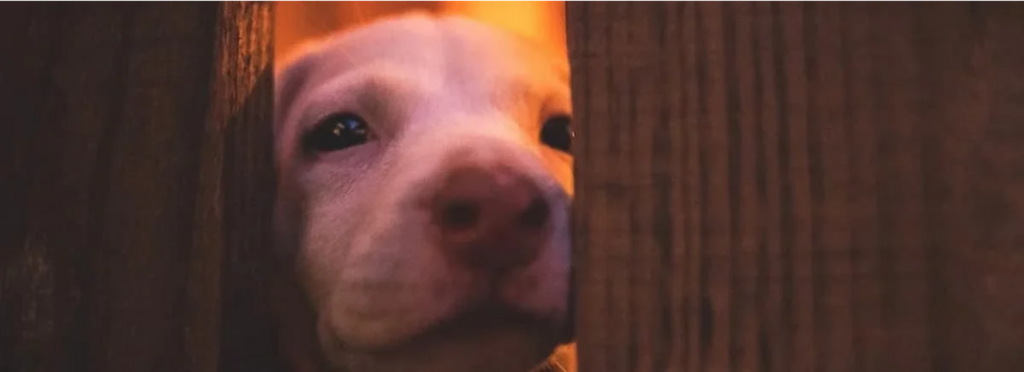
Many young puppies experience separation anxiety when left alone for the first time. This is often due to fear and missing their mother and siblings. To help your puppy adjust, provide a safe, comfortable environment. Consider crate training, which taps into your puppy's natural instincts to sleep in a den. A cuddly toy or soft blanket with your scent can also be comforting. Additionally, using a dog appeasing pheromone like Adaptil may help your puppy feel more at ease. A white noise machine or fan can block outside noise that might frighten your puppy.
Another possible reason for crying is the need to relieve themselves. In addition to taking your puppy out last thing at night, you may need to take them out for a midnight bathroom break, as most puppies cannot hold it through the night initially. If outdoor access is limited, consider using a grass dog toilet or puppy pads.
What not to do:
It's important to avoid yelling at your puppy for crying, as this will only increase their anxiety. When taking your puppy out for a bathroom break, approach them when they are quiet. This way, you won't inadvertently reward the crying by giving attention.
How to stop a puppy from barking
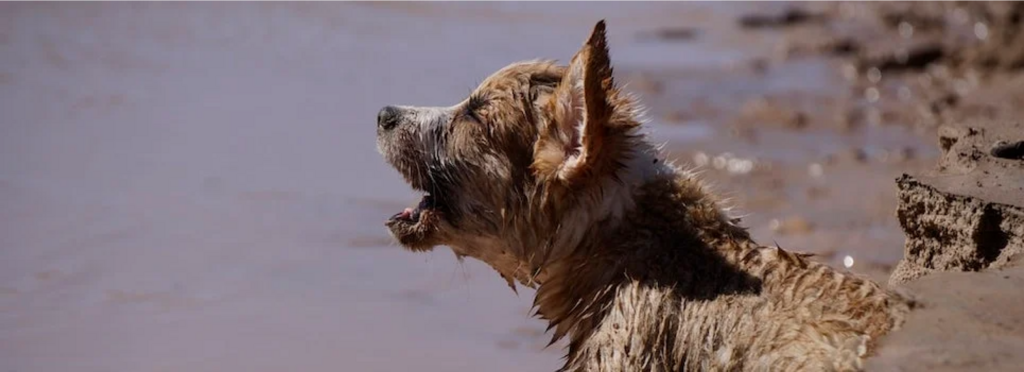
Puppies frequently bark at people for attention and rewards (such as play or food). They may also bark in greeting, at passers-by and other dogs. It's not really realistic to stop your puppy from barking entirely, but there are some methods you can use to help reduce it.
Don't Reward Barking With Attention
It's important never to reward your puppy for barking. Touching, eye-contact, looking at or scolding your puppy all constitute forms of attention and may reinforce the behaviour! Instead, use clear body language to indicate you are ignoring your puppy - for example by turning away or leaving the room. As soon as your puppy falls quiet, reward them with praise or a training treat. You can continue this lesson by rewarding your puppy whenever they are resting calmly. Many dogs learn to be demanding barkers because they only receive attention when they are noisy - not when they are quiet!
Teach Your Puppy To Be Quiet On Demand
To help your puppy learn to be quiet on command, start by associating the word "Quiet" with a reward. Say the word "Quiet" and immediately give your puppy a treat. Repeat this several times until your puppy starts to associate the word with the reward.
Next, teach your puppy to look at you when you say "Quiet." Reward your puppy with a treat as soon as they make eye contact. Once your puppy consistently looks at you when you say "Quiet," you can start introducing the command when they are barking. Gradually extend the time between the command and the reward.
Remember to keep training sessions short and positive with puppies, as they have short attention spans. By following these steps, you can effectively teach your puppy to be quiet on command.
Sources and related content
Clicker training can be really helpful for training puppies as it enables you to communicate very clearly with them. For more information on how to reduce barking, check out our guide on How to Stop Your Dog Barking.
Does your puppy bark incessantly when left alone? See our article on Managing separation anxiety in pets.
How to stop your puppy peeing indoors
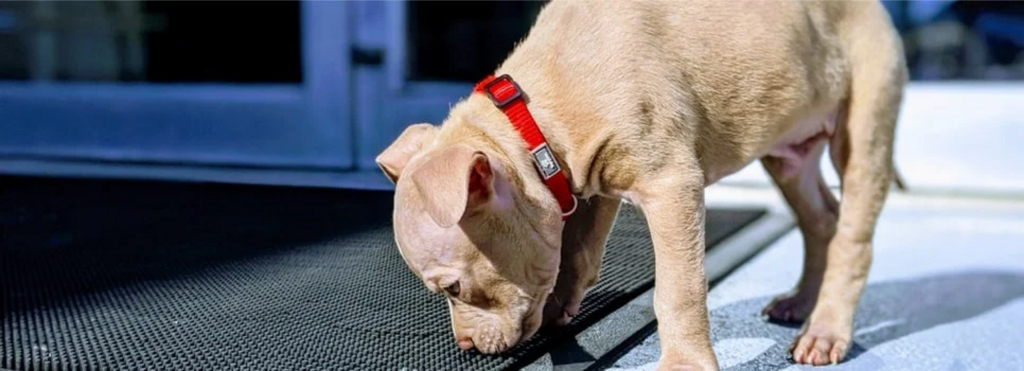
It's common for new puppies to have accidents indoors, but with patience and consistency, you can effectively toilet train your furry friend.
Puppies have small bladders and need to urinate more frequently than adult dogs. As a general rule, your puppy can hold their bladder for approximately one hour per month of their age. To help your puppy succeed, provide regular opportunities to relieve themselves. Take them outside after mealtimes, naps, and play sessions. Praise them when they eliminate in the designated area.
Pay attention to your puppy's pre-toileting behaviours, such as sniffing, circling, and squatting. If you notice these signs indoors, immediately take your puppy outside. Supervision is crucial to prevent accidents. Consider using a long dog lead to keep your puppy tethered to you or confining them to a playpen or crate for easier observation.
Accidents may happen, but cleaning them up with an enzymatic cleaner will help prevent your puppy from marking the same spot again.
What to avoid:
It's important to avoid punishing your puppy for indoor accidents. This won't teach them anything and may lead to anxiety or avoidance behaviours. Never use ammonia-based cleaners, as they can attract your puppy back to the same spot.
For more detailed information, please refer to our article "How to Toilet Train Your Puppy."
How to stop your puppy from eating poo!
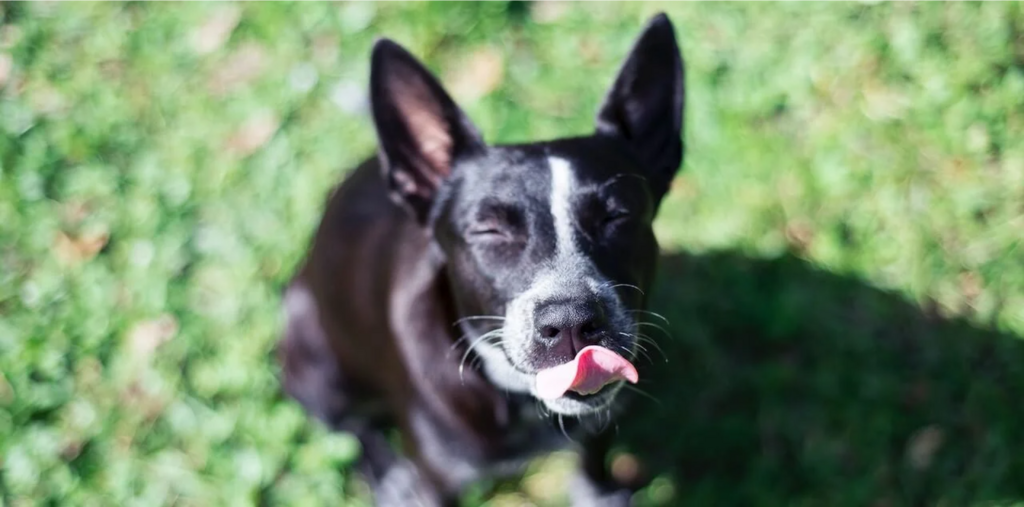
A gross but common behaviour seen not only in puppies, but adult dogs too! The best way to prevent your pup eating their own poop is to clean it up immediately. However, if your pup is alone, providing plenty of entertaining and interactive dog toys toys can help to prevent boredom that otherwise might tempt them into poop-eating.
Consider a diet change if the behaviour persists. We recommend feeding a premium puppy food, to ensure your pup is getting a source of high quality and easily digestible protein. Cheaper pet foods tend to use less digestible and bioavailable protein sources - causing your pup to feel hungry and seek out other food sources! Consult our New Puppy Guide for our top diet recommendations for your new puppy.
For more information, check out our guide on Why Dogs Eat Poop.
How to help your puppy greet people calmly
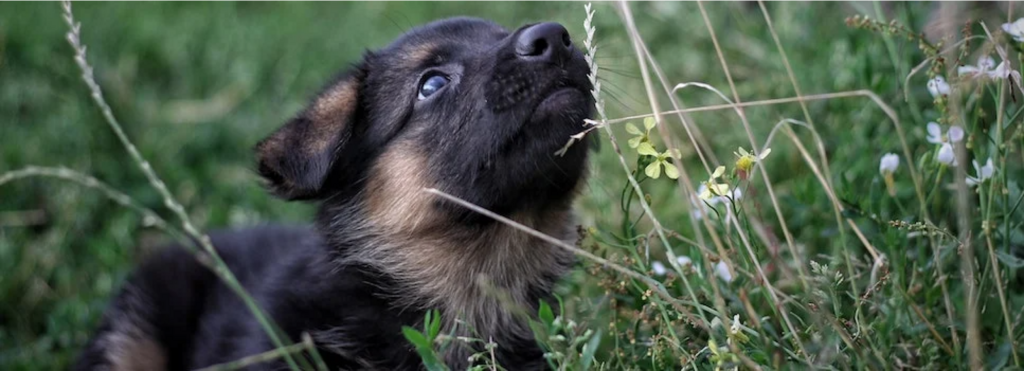
It may be cute when your 8 week old Lab puppy jumps up on visitors - but is not so cute when he is a solid 40 kg! Teaching your dog calm greetings will also teach him impulse control which is important in many situations.
Firstly, we want to avoid rewarding behaviours like jumping up or barking to greet people. As mentioned, looking at your dog or scolding him can inadvertently reinforce these behaviours. Instead, pointedly ignore your dog until he has all four paws on the floor. As soon as he has 'four on the floor' you can reward him by patting him or giving dog treats. From here, you can work up to teaching your dog to sit to greet you if you like.
For very excitable puppies, it may help to physically prevent them from jumping on visitors when they first arrive. This can be done by keeping him in a puppy playpen, behind a safety gate or on a dog leash. When your visitors are all settled, you can let your puppy out to sniff and greet them. Have treats on hand so you can easily divert his attention back to you.
How to help your puppy greet other dogs calmly
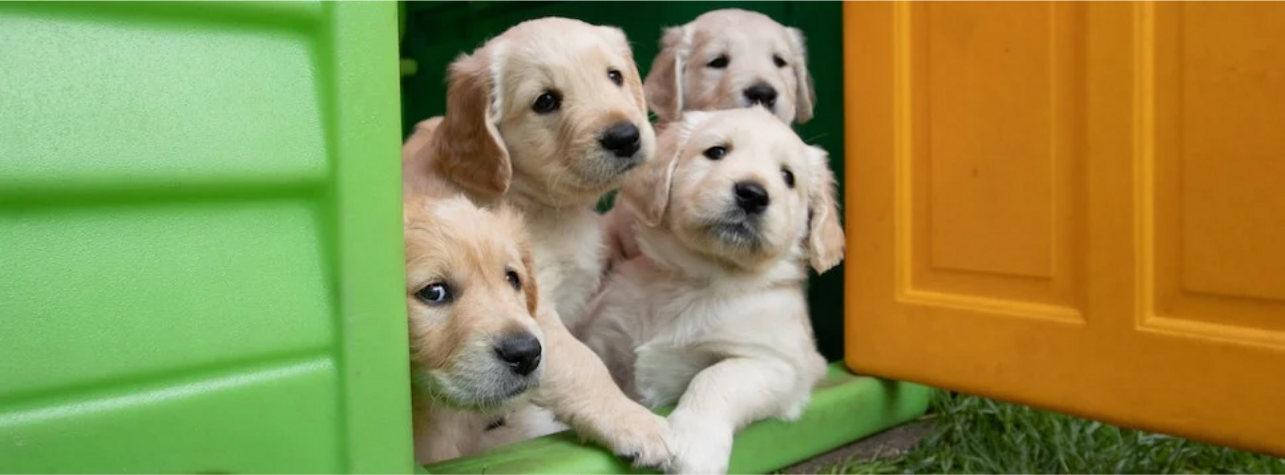
Your puppy will naturally be excited to meet other dogs, but it's important to teach them polite social behavior. Not all dogs, or people, appreciate being greeted, so your puppy also needs to learn how to walk past another dog without interacting.
A great way to start introducing your puppy to other dogs is with a friendly adult dog belonging to a friend or family member. Introduce your puppy on leash, allowing them to sniff each other. Some trainers recommend keeping greetings brief, around three seconds or less, to avoid excessive excitement. After your puppy greets the other dog, call their name and reward them for paying attention to you.
If your puppy becomes too rough, such as jumping up or nipping, intervene gently. Some puppies may not be as food-motivated around other dogs, so you might need to use high-value treats like cheese or chicken. Alternatively, try using your puppy's favorite squeaky toy to distract them.
When walking past another dog walker, focus your puppy's attention on you by offering treats or a toy. If the other dog owner is comfortable with a brief greeting, you can try the "three-second sniff" approach. If not, continue walking past, rewarding your puppy for ignoring the other dog.
Learn more about The importance of socialisation.
How to stop your puppy digging
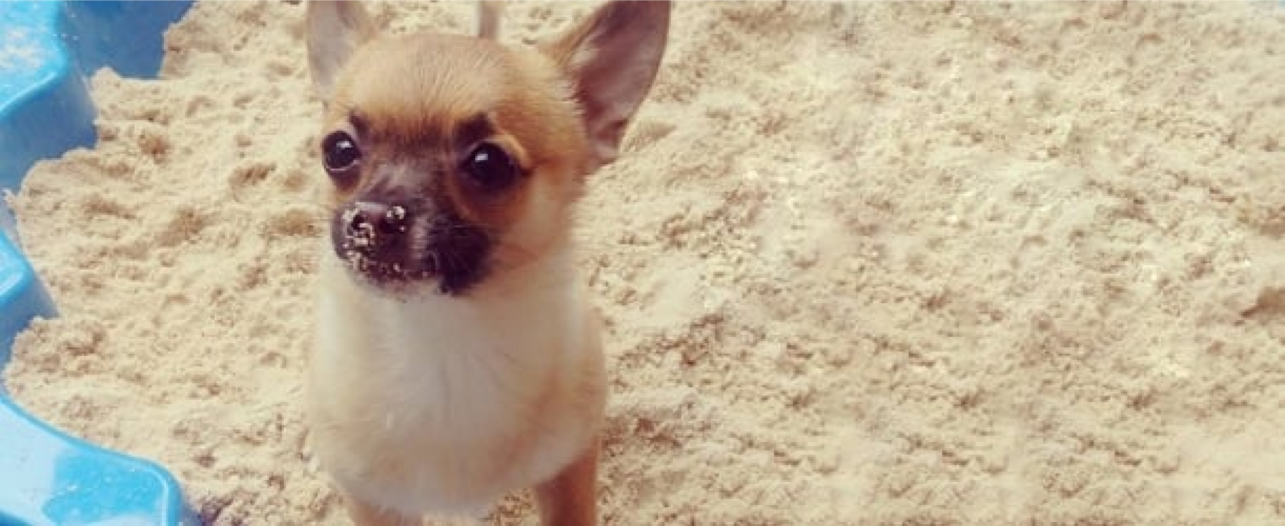
Providing your puppy with sufficient exercise can help reduce their energy levels and prevent destructive behaviors like digging. Additionally, mentally stimulating toys, such as dog puzzle toys, can keep your puppy occupied and out of trouble. When you notice your puppy digging, try to distract them with a game or toy instead.
If you live near a beach, consider taking your puppy there to dig to their heart's content (as long as they are vaccinated). You can also create a designated digging area in your yard or use a specific digging toy designed for puppies. This will allow your puppy to satisfy their digging instinct in a controlled and acceptable manner.
Learn more about How to stop your dog from digging
How to stop your puppy from chewing on everything!
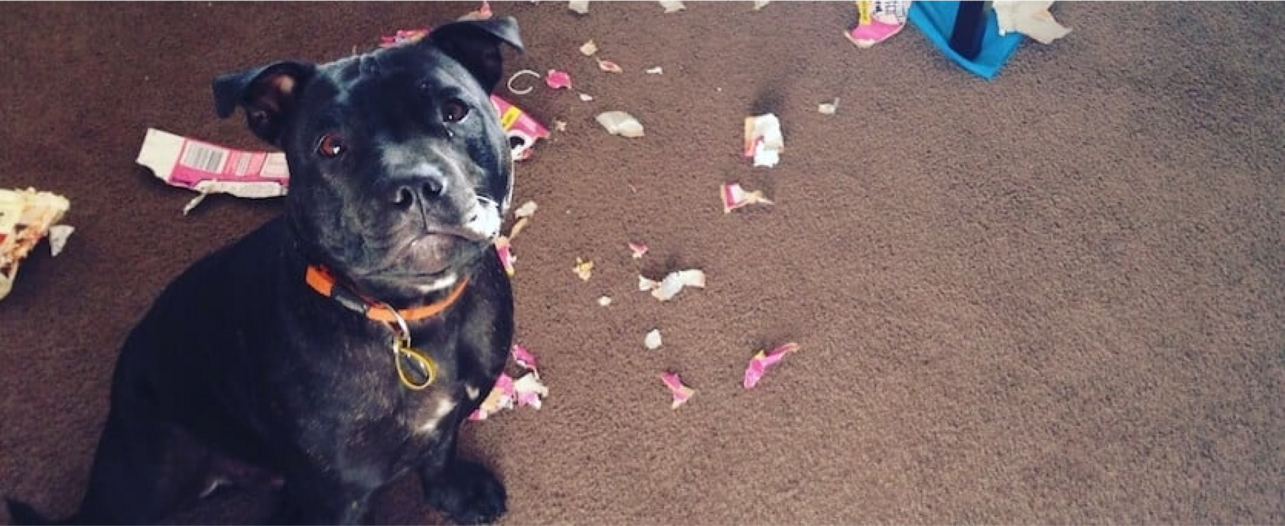
When you bring your new puppy home, they may not initially understand the difference between their toys and your belongings. Chewing is a natural behavior, but it's important to guide your puppy towards appropriate chewing objects.
To prevent your puppy from chewing on items you don't want them to have, remove these objects from their reach. If your puppy does grab something they shouldn't, replace it with a toy and praise them for chewing the toy. Rotating toys can help prevent boredom.
When you need to leave your puppy unsupervised, create a "puppy-proof" zone in your home to minimize potential damage. If you suspect your puppy's chewing is due to anxiety, using Adaptil, a dog appeasing pheromone, may help them feel more settled.
While new puppy-parenthood can be overwhelming at times, rest assured in time your pup will grow out of many of these annoying behaviours. With a little patience and positivity you can shape your puppy into a calm and well-mannered adult companion.
Further Reading
Want to read more? Check out our other articles:
History
Our experts continually monitor the health and wellness space and we update our articles when new information becomes available.
Tue Mar 25 2025
Edited by Dr Teagan Lever BVSc (Hons)Dr Kes Holliday DVM
Veterinarian
Dr. Kes graduated from the University of Melbourne in 2014 with a Doctor of Veterinary Medicine and has worked at small animal clinics in rural Victoria and Melbourne. Dr Kes also worked as an export veterinarian for a pet transport company, helping to move dogs and cats across the world! Her fields of interest include animal behaviour, fish and veterinary public health.

